While teaching my 6 year old daughter to read, I have noticed something about the English language that I never really noticed before. In fact I have noticed this for the last couple of years, as she has been going through the learning process.
The fact is, English needs accents, squiggles and tildes, (collectively known as diacritics) to tell us exactly how to pronounce certain vowels and consonants. It is only when you are teaching a young child to read, or I suppose if you are learning English as your second language, that you realise there are so many odd pronunciation rules to navigate.
For instance, shouldn't silent "Ks" have some kind of symbol to notify us of the fact? As in knight or knife.
Hmm, methinks there is a case to be made here...
Sounding It Out
It was so long ago now, that I don't remember learning to read; apparently my mother taught me when I was 4 years old.
Anyway I'm not bothered about my primary education, now fogged in the faded times of a distant past. I'm interested in modern teaching techniques; these days, in England, they teach children to read by sounding out the letters.
I have always had a major problem with this; whilst I cannot remember the minutiae of the teaching methods employed on me. I do remember being able to recite my alphabet, fairly early on in life.
I remember Sesame St. talking about letters and numbers that was positively delightful to me. However nowadays, it seems the emphasis is on sounding out letters, rather than calling them by their actual names.
So an alphabet recited by an average 4 year old today sounds like; aa, ber, ker, der, eh, fff, and so on. Let me go on record right now and say I absolutely bloody hate this method of teaching.
I feel like it stiffles them unecessarily, and in fact, before she started school, I taught my daughter the alphabet, and this phonics way of doing it, made her forget it.
Apart from them not knowing the names of letters "C" becomes curly ker and "K" becomes kicking ker, it does not take into account that letters in English generally have at least two different sounds and rather ironically, you cannot sound out the word phonics using phonics!
A Case For Accents
I love languages; I am semi-fluent in Spanish (i.e. most Spaniards that speak with me believe I am 100% fluent, however I'm not), I speak a smattering of German a tiny smidgen of Swedish and am learning Mandarin at the moment.
I love the sounds of different languages; I think my favourite at the moment is Brazilian Portuguese, although I love the sound of Swedish and Mandarin almost as much.
What I love about these European languages, and also written Chinese, when European lettering is used. Is that there are a variety of symbols to let you know how to pronounce the letter or group of letters when you are reading the language.
For example a little squiggle under a "C" might indicate that you pronounce it more like an "S", or an angled line above a vowel says you put the stress on that particular letter. From the umlaut in German to the little round circle in Swedish (no idea what it's called), languages are awash with pronunciation aids; so why not English?
English is perhaps the most complex language to learn when it comes to its rules. But Cryptogee, English is such a flexible language! I hear you cry; yes, and it is the very flexibility built into the language that can make it so complex.
The Ultimate Borrower
I think one of the great things about English, is that it borrows so many words and meanings from other languages. We freely use words like entrepreneur, déjà vu, and schadenfreude, yet we do not borrow the visual aids which help pronunciation.
The problem with the French, is they don't have a word for entrepreneur
-- George W. Bush
This has always baffled me, because our language is so diverse and you cannot sound it out with any kind of regularity, like you can with certain languages, like Spanish for instance.
The amount of times I have to say to my daughter, pronounce that "i" as eye and that one as ih, like in the words time and little.
A simple squiggle or line above or even below an "A", "i" or "E", would sort this problem out immediately. So why don't we import this handy little feature from other languages?
Perhaps it is because often when we borrow a word we change its spelling and so therefore drop the accent. Still though, for people learning the language, whether they be children who are native speakers, or foreigners learning it for the first time, accents would be handy!
Surviving Accents
Naïve - The accent over the i shows that the two vowels are to be pronounced separately, not merged together into one sound.
Noël - The same as naïve
pâté - The accent over the "a" makes it sound like ah, and the one over the "e" makes it sound like a hard "A".
cliché - The next three examples are the same, as in pâté, the accent over the "E" makes them sound like an "A".
pureé
café
résumé - The first accent shortens the "e" sound the second, as before turns it into a hard "A" sound, without them the word becomes resume (to start again).
WHAT DO YOU GUYS THINK? THERE ARE A LOT OF FOREIGN LANGUAGE SPEAKERS ON STEEMIT I'M INTERESTED TO KNOW WHAT YOU FEEL ABOUT LEARNING ENGLISH. WOULD IT MAKE IT EASIER TO LEARN IF IT HAD WRITTEN ACCENTS? WHETHER YOU'RE A NATIVE SPEAKER OR NOT, LET ME KNOW BELOW.
Cryptogee
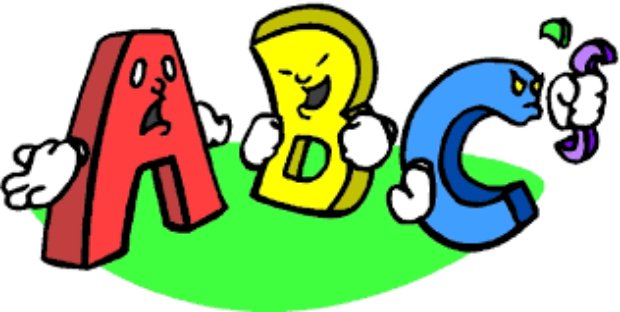
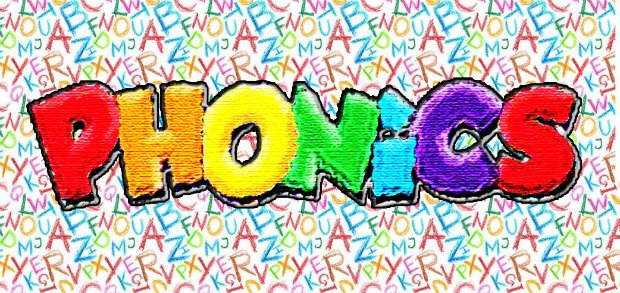
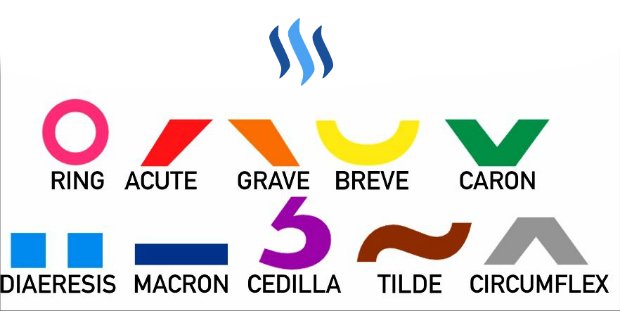
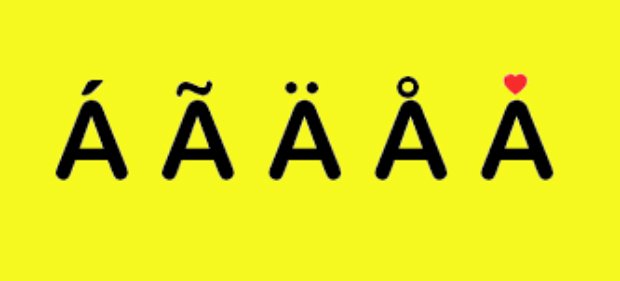
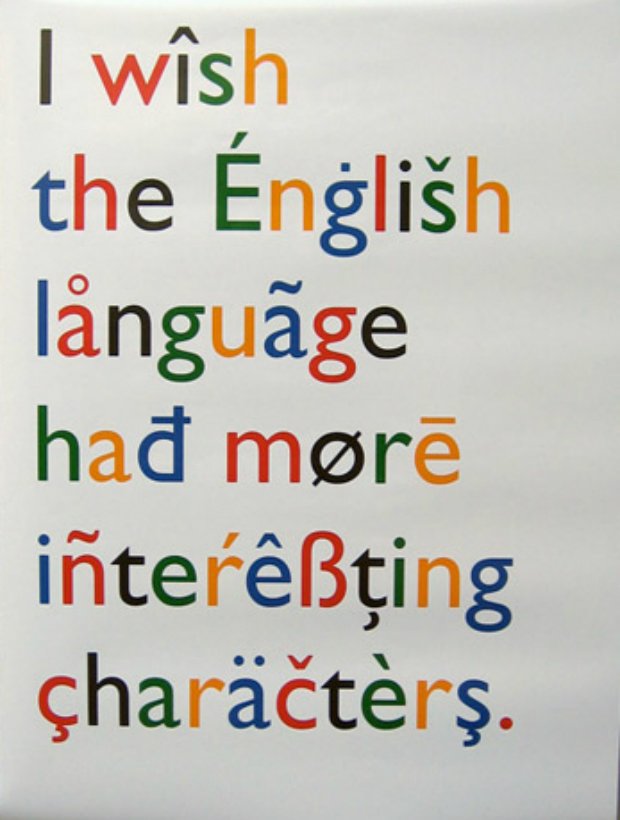
Finnish is my native language, and I'm fond of the fact that you pronounce every single word exactly as it is spelled. Even more so than in spanish. A single vowel is pronounced short, and a double vowel is pronounced long. Same with consonants. No exceptions. We have 29 letters, so the entire language is composed of just those 29 sounds, four of which are used only in borrowed words.
What's weird about that is that foreigners find it confusing. I have no idea why. (btw I wrote "wierd" because that's how you pronounce it, but the spell-checker helped me). My kids are bi-lingual, and even they have problems learning the rule after having learned Swedish first.
In complete contrast to the simple pronunciation, the grammar is incredibly complicated. You can make some 1500 combinations of one word and several postpositions (if that's the word for the opposite to preposition).
Downvoting a post can decrease pending rewards and make it less visible. Common reasons:
Submit
Yes, I have a few Swedish friends, and I have met Danish people, and the tell me that Finnish is incredibly hard, and they liken it to Russian more than the other Scandinavian languages, which I find fascinating!
Cg
Downvoting a post can decrease pending rewards and make it less visible. Common reasons:
Submit
I honestly never knew what diacritics were until this post! I've always called them by their professional names: tick mark thingie, squiggle, monkey tail, etc. lol
English, in general, is one giant anomaly. I pity anyone trying to learn it because there are more exceptions to the rules than there are actual rules. As I'm learning Spanish, I caught myself one day thinking "this is so difficult, there's all these exceptions with various phrases." In reality, it's starting to become clear that it's more likely ENGLISH which is already following stupid exceptions, making Spanish seem out of the norm.
I agree with you, though. Diacritics would definitely make learning to read and pronouncing new, unfamiliar words much easier.
When I was learning how to read, my school taught "phonograms." It sounds similar to what your daughter is learning, except it taught each sound a letter (or group of letters) could possibly make. For instance,
"a" = ah, aye, awh (bath, take, bra)
"ough" = oh, ooh, ooph, awph, ow (though, through, rough, cough, bough)
I found phonograms to be one of the most (annoying at the time but) valuable things I ever learned in school. That, and the Shurley Method, which is probably why I'm so good at writing/grammar now.
Anyway, thanks for geeking out over grammar with me! :)
Downvoting a post can decrease pending rewards and make it less visible. Common reasons:
Submit
Haha, I didn't know they were called that, until I started researching the article, I just thought they were called grammatical accents, or somesuch thing :-). Though I do like thingie and monkey tail lolz.
I find Spanish pretty easy for rules, and they do seem instinctive, even things like por and para, I seem to just know, without knowing why. Also the Spanish are so laid back, that they don't seem to care if you butcher their language!
If you want to twist your head up with rules, try German; I have asked German people what the rule is for using Der, Die und Das (the three words for the), not one of them has been able to give me an answer. I've asked some pretty clever ones too!
Man, phonograms sounds so much better than phonics, although maybe they will kind of morph into something similar as she gets older...who knows? I don't know what the Shurley method is, I'll look that one up, and see if I can use it to help my daughter along.
Always a pleasure to meet a fellow grammar geek :-) :-)
Cg
Downvoting a post can decrease pending rewards and make it less visible. Common reasons:
Submit
That's really good to know. I'm sure I'll verbally slice and dice my Spanish for a while before really getting the hang of it.
German sounds intense! For your reasons and also how angry it sounds in general lol. Reminds me of this video:
Both phonograms and the Shurley method made me want to rip by grade school hairs out at the time, but I am super grateful for all that education now. Hopefully you can find some useful lessons for your daughter! It's stuck with me like not much else has.
If you ever want to geek out on grammar some more, you know where to find me! ;)
Downvoting a post can decrease pending rewards and make it less visible. Common reasons:
Submit
Hahaha, I've just seen this! Love it! I tell you though, once you get past the angry sound of German, it is incredibly practical, just like the people.
For instance, the first example; aeroplane, in German; fleugzeug literally translated, means, fly thing.
Ill = Krank
Hospital = Krankenhaus (ill house)
Ambulance = Krankenwagen (ill wagon)
Toy = spielzeug (play thing)
and the list goes on!
Though in the video they say that sorry is entschuldegung, which is more excuse me.
Sorry is actually es tut mir leid (it gives me pain)
Favourite German word: Die Wirtschaftforderungsgesellschaft :-D The Economic Development Agency
Gotta love those crazy Germans!
Will defo come and find you for some more grammar geekery!
Cg
Downvoting a post can decrease pending rewards and make it less visible. Common reasons:
Submit
I don't agree my friend, I speak spanish which has lots of accents, squiggles and tildes that I cannot remember hahaha If english decided to used them then I'll be screw hahahahaa
(joke ) we do need some
Downvoting a post can decrease pending rewards and make it less visible. Common reasons:
Submit
Haha, and it's true if I ever write Spanish I often forget certain accents, my favourite is the tilde though, I love the sound of an "N" with a tilde - Encuentrare en el montaña por la mañana
:-) Oh plus I love the upside down exclamation marks and question marks too :-)
Cg
Downvoting a post can decrease pending rewards and make it less visible. Common reasons:
Submit
I couldn't agree more, this sort of punctuation would make learning English at any age and teaching MUCH more logical instead of based on memorization.
Downvoting a post can decrease pending rewards and make it less visible. Common reasons:
Submit
I know, I'd never really thought about it until I started teaching my daughter, but it seems so obvious.
Cg
Downvoting a post can decrease pending rewards and make it less visible. Common reasons:
Submit
Super interesting! I couldn't agree more. There are countless instances where the pronunciation of english words makes zero sense. Let's spice up the alphabet and get hooked on phonics! :)
Downvoting a post can decrease pending rewards and make it less visible. Common reasons:
Submit
Definitely, I mean I like some idiosyncrasies like plough for plow and dough for the sound doe, but let's have some nice squiggly characters in there as well! :-)
Cg
Downvoting a post can decrease pending rewards and make it less visible. Common reasons:
Submit
english is broad and learning is a gradual process... thanks for sharing
Downvoting a post can decrease pending rewards and make it less visible. Common reasons:
Submit
It is indeed!
Cg
Downvoting a post can decrease pending rewards and make it less visible. Common reasons:
Submit
That's a bit funny to think about it, @cryptogee. But I really understand you as it was hard for me to learn to speak English a few years ago.
I have just upvoted and followed you. Keep up the good work!
Downvoting a post can decrease pending rewards and make it less visible. Common reasons:
Submit
Ah cool! Do you think having accents would have helped you, or not really?
Cg
Downvoting a post can decrease pending rewards and make it less visible. Common reasons:
Submit
Yeah, it would have helped me for sure. It's really important in learning English as it makes you speak way more clear.
Downvoting a post can decrease pending rewards and make it less visible. Common reasons:
Submit
Yeah, I was just looking at the last graphic I put up, and it just dawned on me that the "E" in English, is pronounced like an "i", just crazy stuff! :-D
Cg
Downvoting a post can decrease pending rewards and make it less visible. Common reasons:
Submit
That George Bush quote is classic of the American cowboy president. I have an 8yr old and she speaks 3 languages and share your view of Teaching English to her. There are too many rules..
Downvoting a post can decrease pending rewards and make it less visible. Common reasons:
Submit
Yeah it's great isn't it :-D
Wow 3 languages, do you and your wife speak different languages to her? How is she getting on with her English? They say that any language learned before 8-10 is stored as a Mother tongue language in the brain :-)
Cg
Downvoting a post can decrease pending rewards and make it less visible. Common reasons:
Submit
She is fluent in English as she goes to English school.. her mom is Russian and since we live in Panama she knows Spanish which is mandatory 2 hrs daily in all Foreign Language schools.
Downvoting a post can decrease pending rewards and make it less visible. Common reasons:
Submit
Awesome, growing up tri-lingual, she will easily pick up languages, I envy her :-)
Cg
Downvoting a post can decrease pending rewards and make it less visible. Common reasons:
Submit
Yes its great. Follow me my friend.
I am crypto enthusiast and now steemer.
Cheers
Downvoting a post can decrease pending rewards and make it less visible. Common reasons:
Submit
Reading your blog reminds me how inferior my writing is.
See! I can't even write that sentence without ending it in a preposition.
Downvoting a post can decrease pending rewards and make it less visible. Common reasons:
Submit
Not at all! At least you know what a preposition is. ;-)
Cg
Downvoting a post can decrease pending rewards and make it less visible. Common reasons:
Submit
Turns out I don't. @sharingeverybite informed me that "is" is a verb.
On another note, regarding the languages you mentioned in the post. I've been learning Spanish for about a year. After I'm fluent or close to fluent in Spanish, I was planning to start learning Mandarin. When fluent in English, Spanish, and Mandarin, you can communicate with most people on Earth.
Steemfest might throw a wrench in my plan, though. Because I should learn some Portuguese if going to Lisbon in November. English, Spanish, Mandarin, and Portuguese. That covers most of the languages you mentioned.
Downvoting a post can decrease pending rewards and make it less visible. Common reasons:
Submit
Aha, I suppose it is, and of course it is taken from to be, something I didn't know until I started learning other languages.
Spanish is great, I love it, and am (almost) fluent myself, I have just started learning Mandarin, which is hard as hell, but fun. Even though you can learn it using the lettering we're all familiar with, it still hurts my head to remember stuff.
I would love to learn Portuguese as well, though the Brazilian version, as I love the sound. I find when it is spoken by people from Portugal, it sounds a lot more Slavic.
A friend once said to me that; "Portuguese is Spanish with your mouth full!"
:-)
Cg
Downvoting a post can decrease pending rewards and make it less visible. Common reasons:
Submit
What an interesting observation. It is difficult and it would help if there were more accents on the words. That's a very valid point.
Downvoting a post can decrease pending rewards and make it less visible. Common reasons:
Submit
Yeah, I'd like to see some diacritics slipped in here and there :-)
Cg
Downvoting a post can decrease pending rewards and make it less visible. Common reasons:
Submit
I've created software that adds diacritics you can see it here
http://webpidgin.co.uk/
Downvoting a post can decrease pending rewards and make it less visible. Common reasons:
Submit